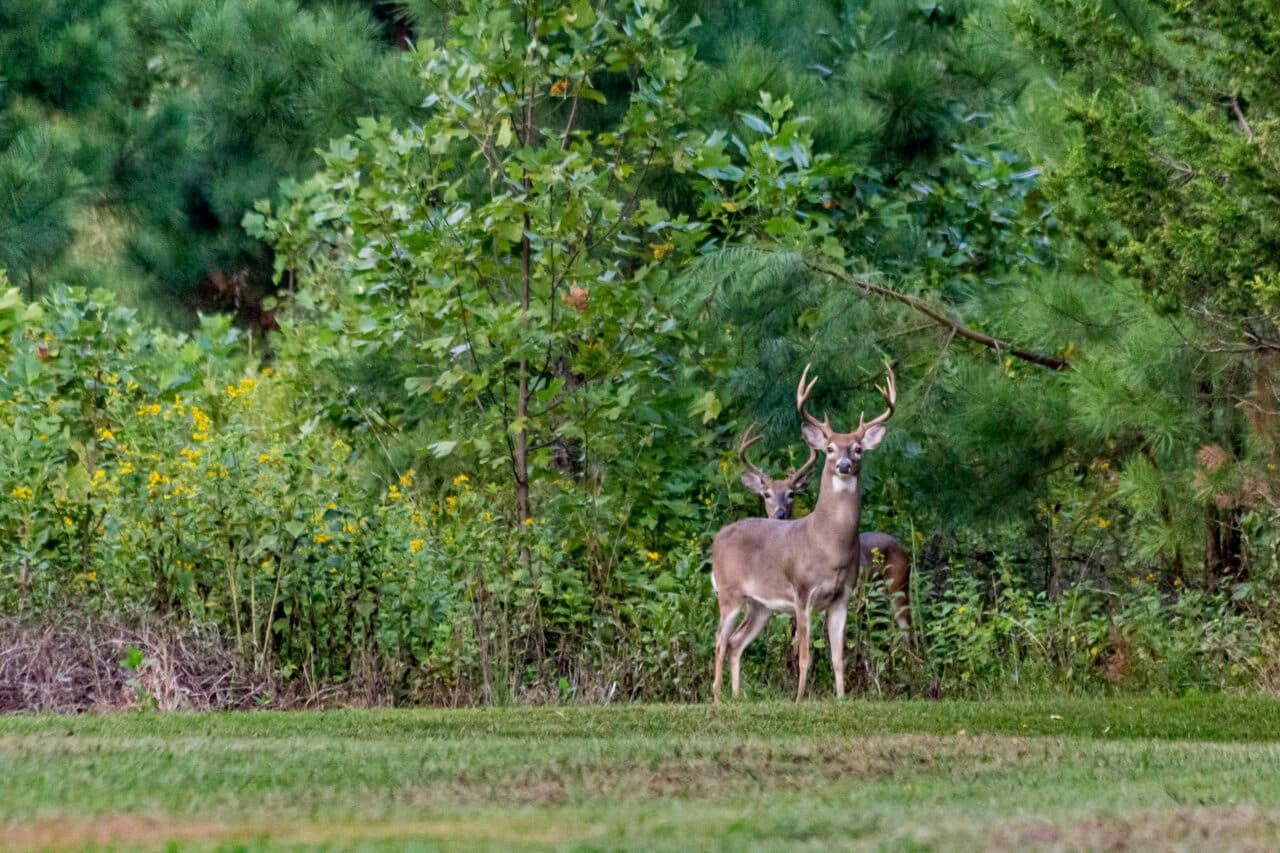Deer season is just about to start, and preparations are underway. In addition to getting your license, cleaning your firearm or bow and getting out your gear, you might consider what prep you need to do to prevent allergy flare-ups. There are plenty of allergy triggers in the field, and a severe allergic reaction while hunting, far from medical care, could be dangerous.

Potential Triggers
An itchy, runny nose, congestion, sneezing, coughing and hives commonly characterize allergy symptoms. If you display any of those symptoms while on the trail, you may have an allergy to one of the following triggers.
Animal Dander
Animal allergies aren’t exclusive to cats and dogs; you can also be allergic to deer dander. Dander is the term used to describe flakes of dead skin cells that build up on animal hides. They are microscopic and light, so touching an animal, whether petting a dog or dressing a deer hide, causes the dander to go airborne, which is how you’d breathe it in. It can also get on your hands and clothes if you touch the animal.
Mold and Mildew
The rotting leaves and morning autumn dew create a moist, warm environment in which mold and mildew thrive. They spread over the ground and get kicked up as you walk. Crouching down in the grass gets the spores on the ground, and you’re close enough to breathe in those spores.
Preparations to Make
As you gather your kit, consider your allergies and pack accordingly. Also, clean your clothes and gear thoroughly to remove all the dust accumulated in storage.
What to Pack
- Medications. Bring antihistamines to take daily to build up your tolerance, and quick-relief medications, such as an inhaler or topical cream, to take in the event of a bad flare-up. Pain relievers and anti-inflammatory medications may also be helpful.
- Face masks block dander and/or mold spores from being inhaled.
- Sunglasses or goggles cover your eyes and prevent itchy, watery eyes.
- Gloves that cover your whole arms. If you have a deer allergy, wear these while dressing a deer.
The Hunting Cabin or Blind
If you hole up in a hunting cabin, give it a good scrub when you get there to clear off any dust or pollen that settled in your absence. If any linens or bedding are stashed there, wash them well. Clean mold with a mixture of equal parts water and white vinegar. Wear a face mask while doing this to avoid breathing in irritants.
If you use a blind, avoid mold by keeping all windows and vents open to increase airflow. Watch for moisture building up inside the blind: remove any clothes or items that get wet and lay them out to dry outside the blind, and wipe down condensation with a dry cloth. At the end of the season, clean the blind and re-waterproof it if necessary. Make sure it dries completely before you store it, and store it in a breathable storage bag in a dry, ventilated area.
See an Allergist
Don’t be ambushed by an allergic reaction when you’re out in the field and far away from help. See an allergist about an allergy test so you know ahead of time what allergens you need to be cautious of, or start allergy treatments, such as allergy shots or allergy drops, to lessen your body’s response to allergens. Call Willamette ENT & Facial Plastic Surgery today to find out more about these services. Happy hunting!
Learn More
“Had a great experience. Got in very quick and felt safe with covid protocol! Everyone was extremely nice.”